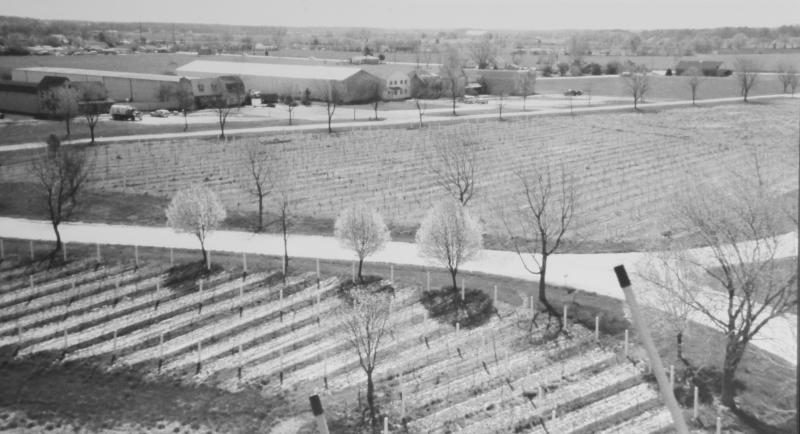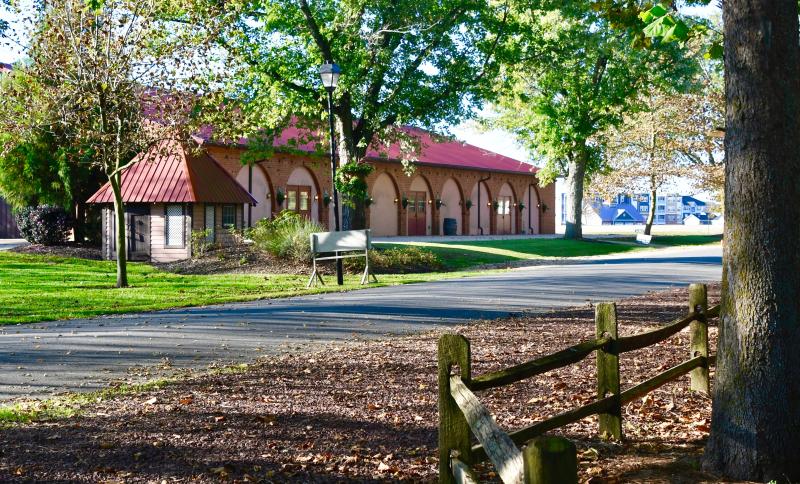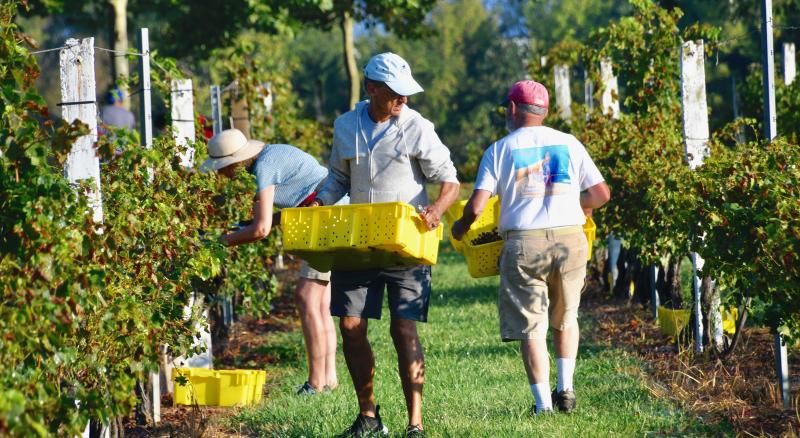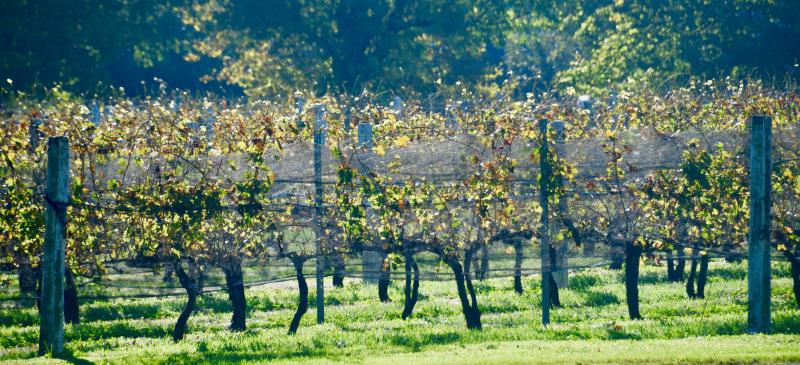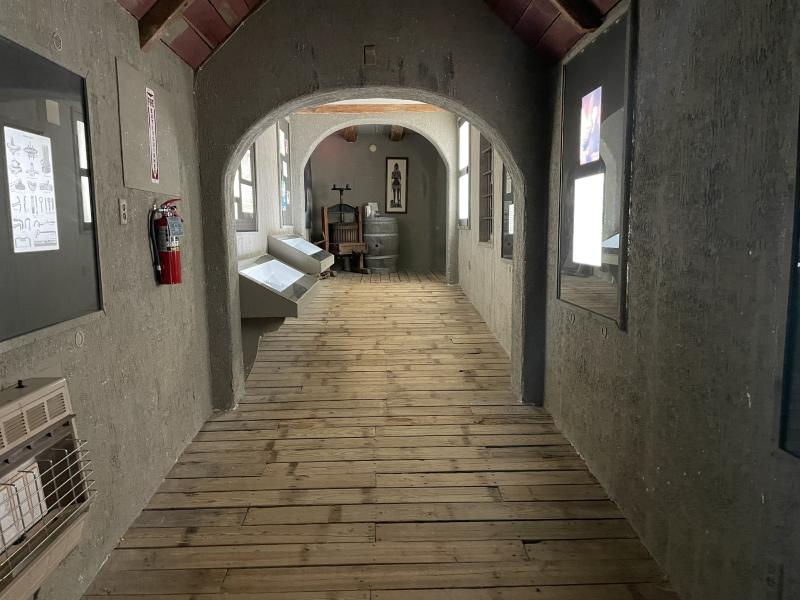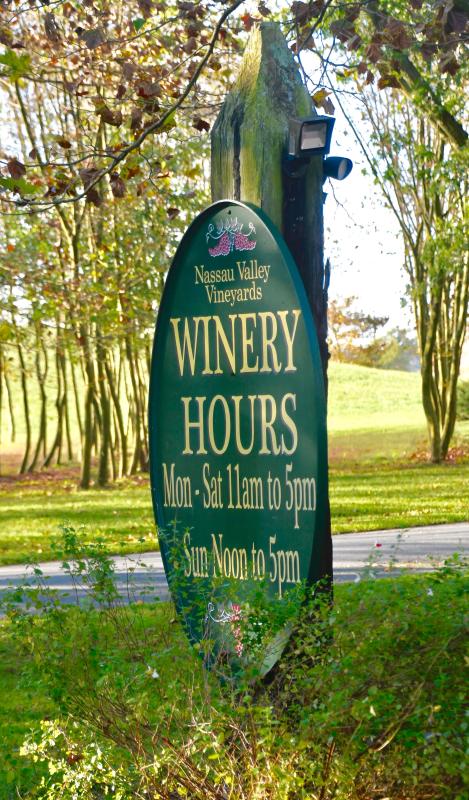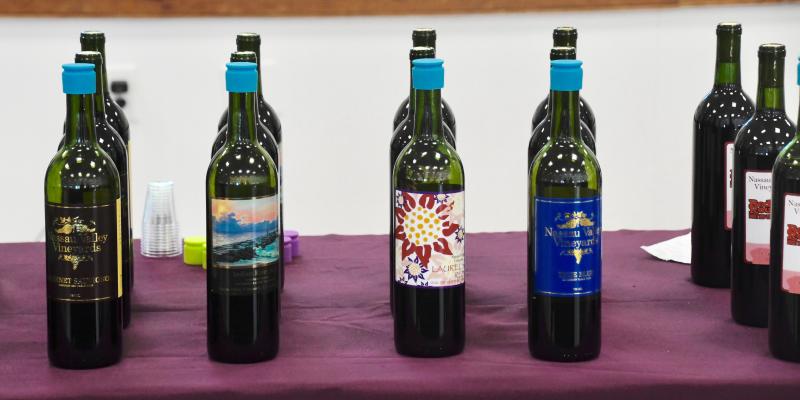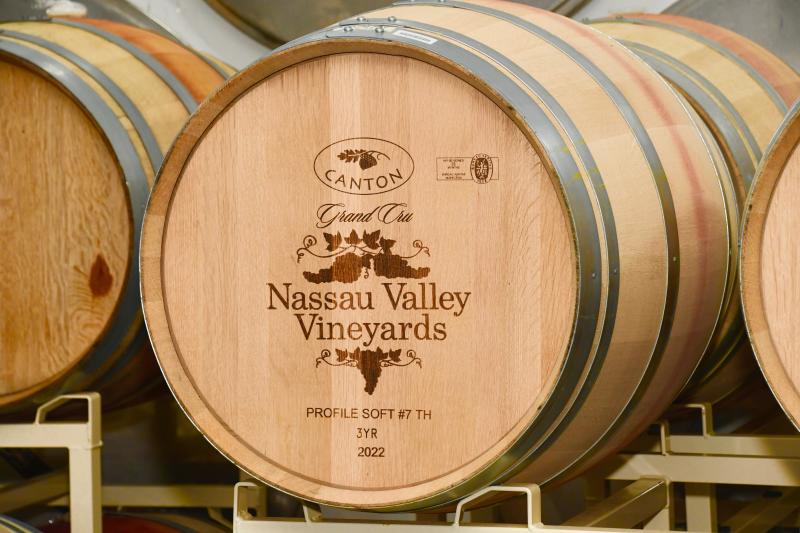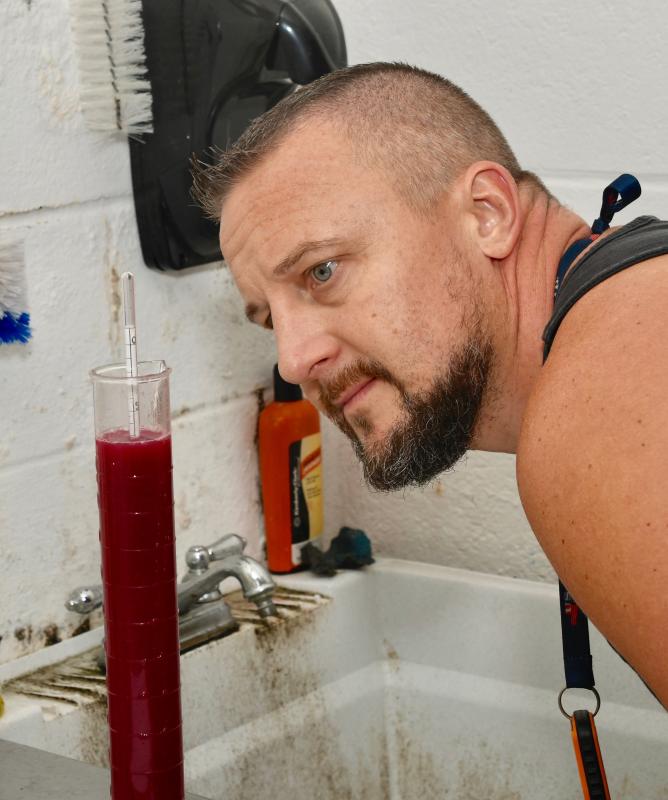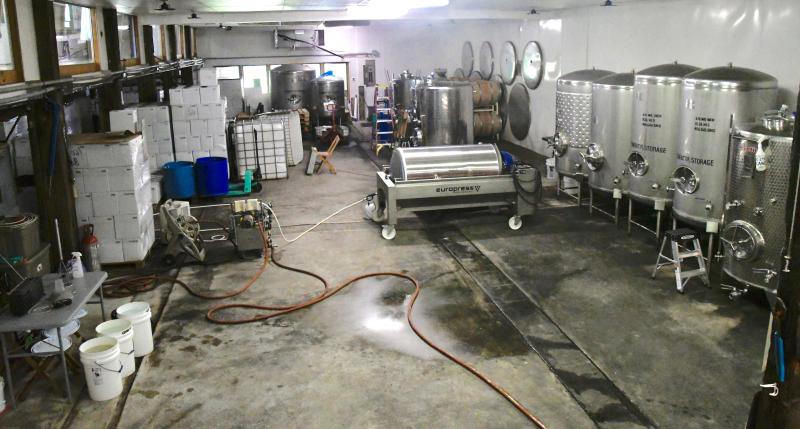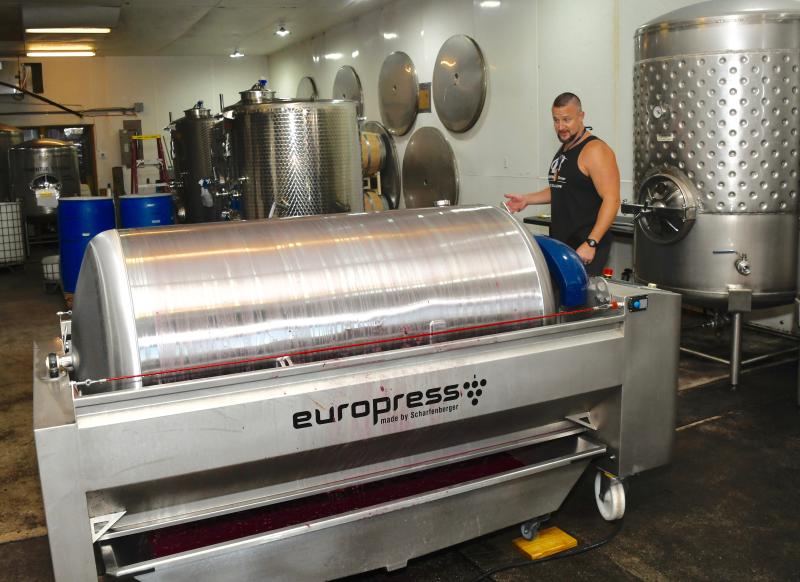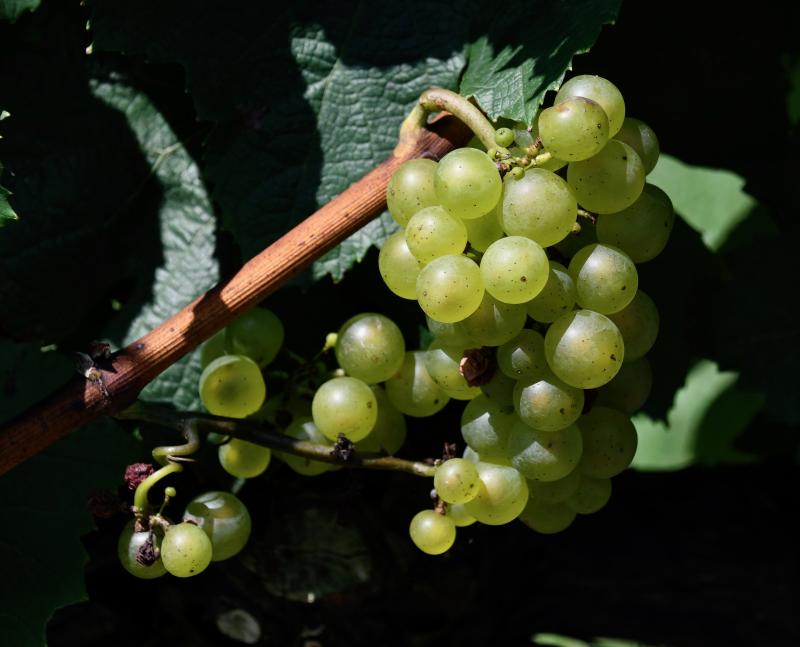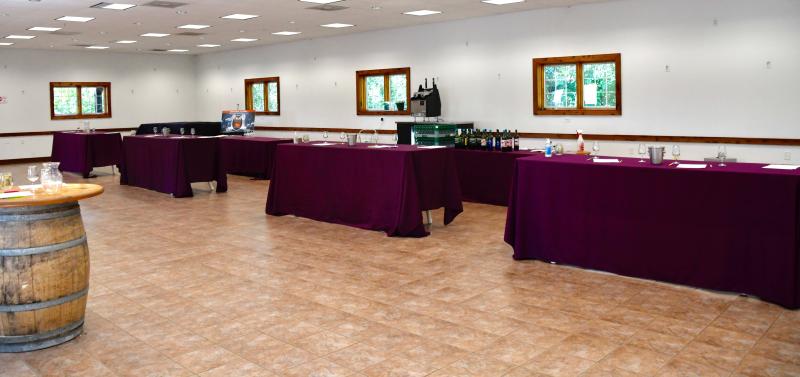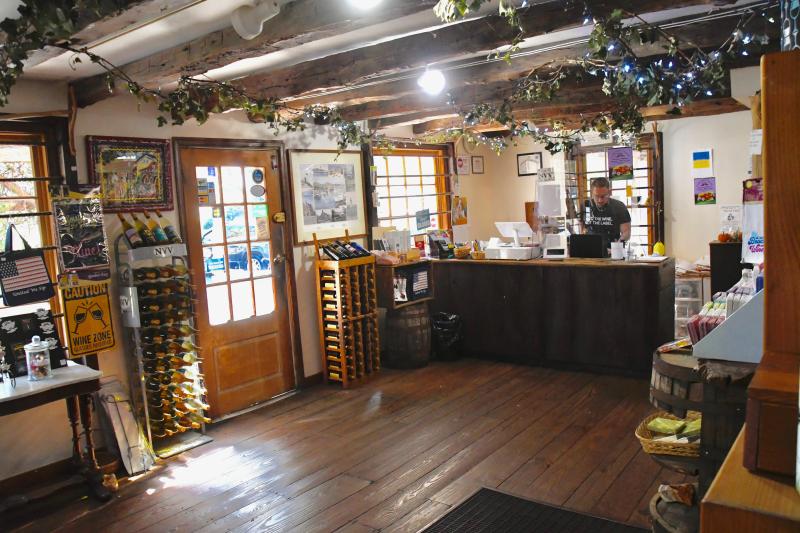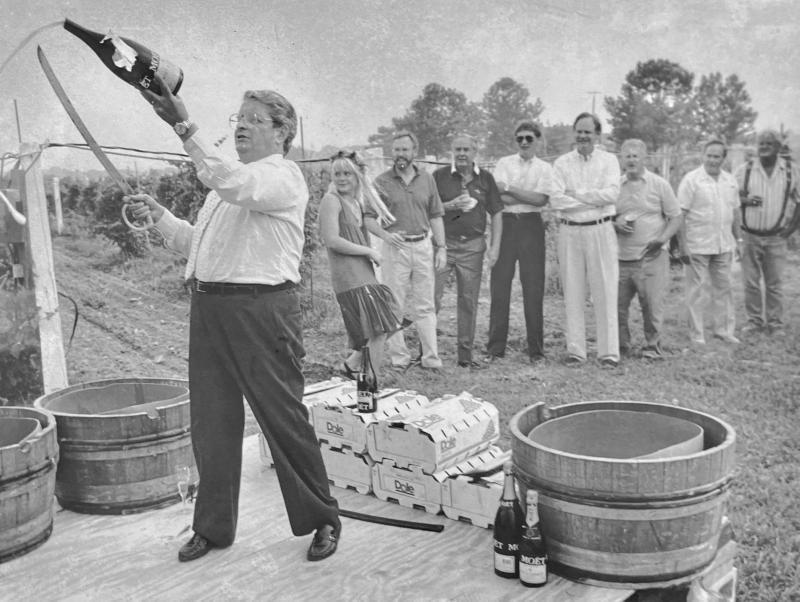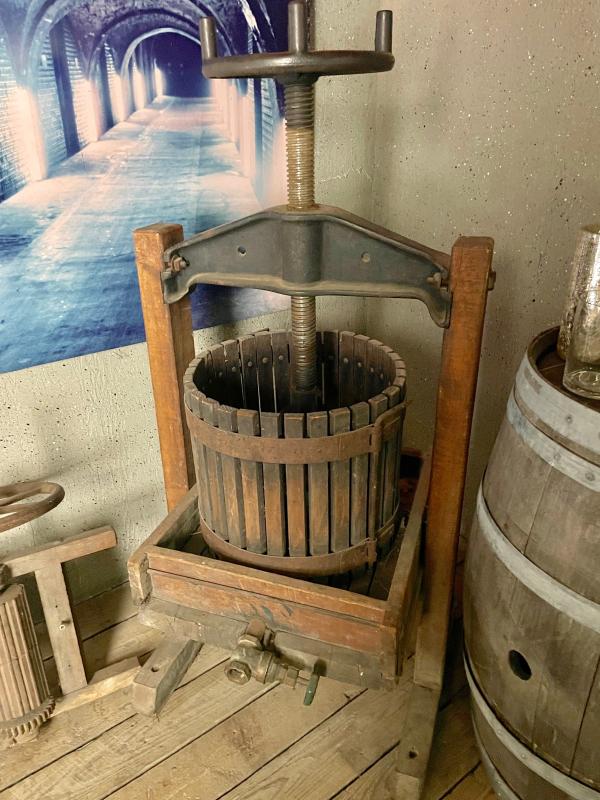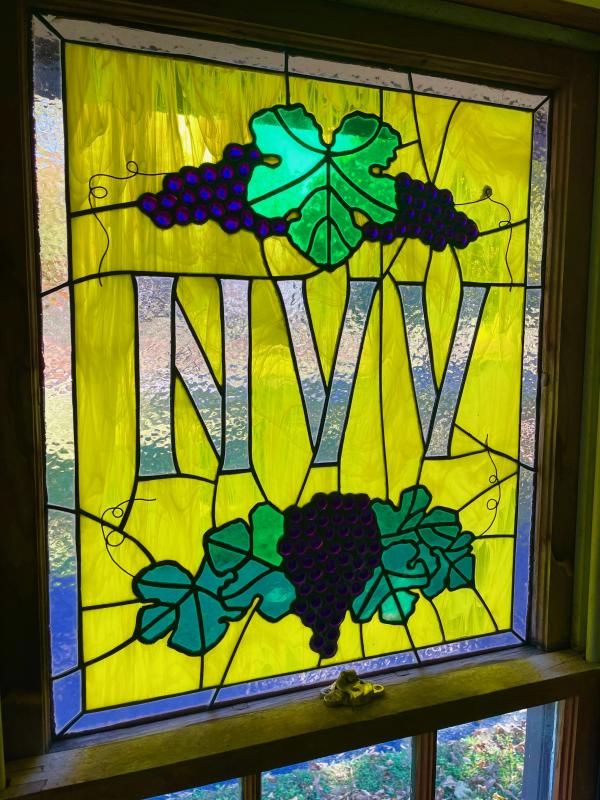Nassau Valley Vineyards roots go back 30 years
Nassau Valley Vineyards near Lewes is celebrating its 30th anniversary in October.
Over the years, the operation has grown by leaps and bounds from a few acres of grapes. Today, the prize-winning vineyard has become a wedding and special events destination with two spacious venues. A popular Sunday farmers market has been operating for the past eight years. Wine tasting, self-guided winery tours, live music and art exhibits are all part of the offerings at the vineyard.
And it all falls under the ownership of sisters Peggy Raley and Suzette Raley Hopkins.
Over the years, the vineyard’s wines have won more than 600 medals at international competitions.
The beginning
To really appreciate Nassau Valley, you have to go back in time to understand how it started.
Before it was a vineyard, BAR Farms was a large alfalfa hay field as part of the farm operations of the sisters’ father, Bob Raley.
The well-known Lewes icon, who died in 2013, was involved in a variety of activities beyond farming. The U.S. Army veteran and outdoorsman owned a florist business; grew chickens, hogs and beef cattle; had a landscaping business, founded Holly Lake Campground and the Boat Hole Marina; and bought, sold and developed land. He also started the Nassau Commons office complex.
Although she grew up living the Lewes lifestyle on the farm and at the beach, Peggy said she couldn’t wait to get out on her own path. After high school graduation in 1985, she attended American University in Washington, D.C.
It wasn't long before she took another path that led to on-the-job training in the wine business from some of the top growers and aficionados in the world.
She worked for Les Amis du Vin International and The Friends of Wine until 1990, where she did photography, writing and gave wine tours all over the world.
At 18, she was not even old enough to drink in the United States, so she was sent to France and Spain. “I traveled all over Europe and fell hopelessly in love with the wine business,” she said.
She set up and led tours in her nonstop lifestyle. “My dream was making my own wine instead of writing about it,” she said.
“My family really wanted me to come home,” she said. “And then Dad said, ‘We can make wine here.’”
A new state law
But there was a major obstacle. State law prohibited production and resale of any alcohol. “You couldn't get a wine license in Delaware,” she said. “And with a small winery, you have to have retail to survive.”
So, 22-year-old Peggy went on a crusade to get state law changed, which included alcohol sales on Sundays, also against state law at the time.
Thanks to her tenacity, the farm winery legislation passed in 1991 in less than 45 days. “It was the fastest-moving legislation in the history of the U.S. wine industry,” she said. “It was actually fun to work in Legislative Hall. It was a great challenge to be part of the governance. Many legislators crossed the aisle to support the legislation.”
The Senate vote was unanimous. A few downstate House members did not vote because Sunday sales was included in the bill.
“The alcohol lobby tried to kill the bill with amendments, but it was signed by Gov. Mike Castle,” Peggy said.
It took nearly another three years to get the state and federal permits to make wine. The first two years, 1991-92, they produced wine from a Chadds Ford, Pa. winery. “We couldn't bring it here,” she said.
They started with 2 acres, which quickly grew to 9 acres. In 1993, Peggy and her father opened the first winery in Delaware.
Robert Gourdin, marketing director for Dom Perignon Champagne, came to officially christen the vineyards during a ceremony thanking supporters of the new law. When he cut the top of a bottle off, it broke off and just missed hitting Gov. Castle.
Good wines grown at home
“I've been able to rub shoulders with the pioneers of the wine industry in the United States. And I learned from the greatest people in the industry in the mid- to late 1980s. The best in the world always told me you can grow good local wines at home,” she said.
“Our soil is sandy, which grapevines love, and our proximity to the Delaware Bay and Atlantic Ocean also makes for a nice temperate growing climate,” Peggy said.
Peggy said the vineyards has had great community support. “It really has been a community effort. Some people told me that you can't grow good wine in Delaware. That's changed and a lot of people have become entirely supportive. This represents a lot of good works by a lot of people,” she said.
Nassau Valley grows European variety grapes. “We have always focused on quality and not quantity,” she said.
The annual September and October harvest produces 4 to 5 tons of grapes or 3,800 to 5,000 cases of wine.
The vineyards include Chardonnay, Cabernet Sauvignon, Cabernet Franc and Merlot grapes. Nassau Valley uses other regionally grown fruit to produce 14 wines. They also purchase grapes and fruit from growers on the Eastern Shore and the Finger Lakes to supplement with other regionally grown fruit. All the wine is crafted in the Nassau wine cellar by Mike Reese, who has worked at the winery for 15 years.
Let the weddings begin
Peggy said a couple approached her years ago and asked if they could be married at Nassau Valley. The idea for a wedding venue was born. The first 3,600-square-foot building was built in 2003, and a second, larger building at 8,400 square feet opened in 2009. “Weddings have a life of their own here,” she said.
Nassau Valley recently hosted a reception for couples who were married at the vineyard.
“We celebrate all of life's occasions from parties and weddings to memorial services,” she said. “It's a big responsibility, and now they are all part of the Nassau Valley family and always will be.”
Many of the buildings are from the original farm and have been repurposed.
Successful farmers market
Peggy is particularly proud of the Sunday farmers market. She was contacted by Pat Coluzzi of the Rehoboth Beach Farmers Market that vendors were looking for a Sunday venue. “We provided the venue and she provided the vendors,” Peggy said.
“It's been a good benefit for our business. Now Sunday is our busiest day. We have a good balance that includes crafters, and music is an important part of the event. People say we are hip with booze, music and food,” she said.
All that jazz
Peggy is also an accomplished jazz singer, and with her husband, Sherman Ward, founded True Blue Jazz in 2012, which includes a yearly festival highlighted by artist visits to local schools’ jazz bands. Scholarships are also awarded to aspiring music students. She also performs with her husband as part of the Eddie Sherman Show.
Timeline
In winter, pruning of the vineyard’s trellises takes place. Pruning must be exact to control the size of the vines and size of the crop.
In April, tender shoots start to show, which are susceptible to frost.
In June, flowering takes place for 10 to 14 days. Heavy rains would be fatal to the crop at this point. Baby grapes appear next in late June.
In August, grapes reach their full size and begin to ripen. At this point in the process, the crop is easy food for birds. The vineyard has noise machines and uses a net system to protect the grapes.
In September and October, the annual harvest takes place.
Grapes grow best in poor soil. The crop needs a good trellis system, a spray program and lots of care.

